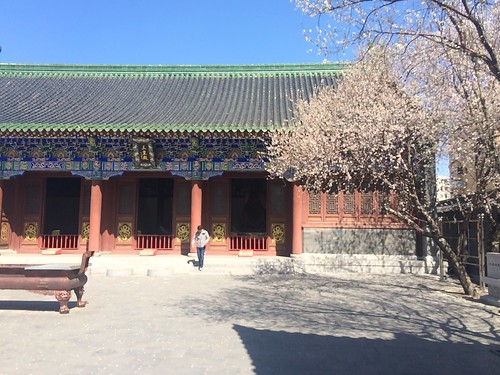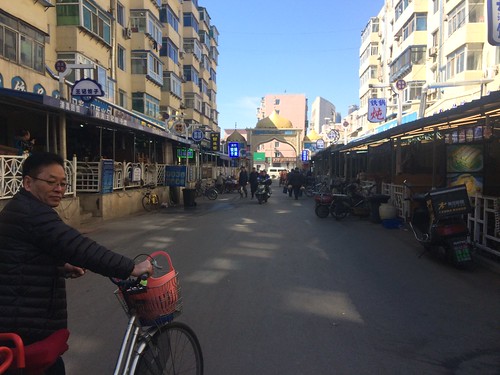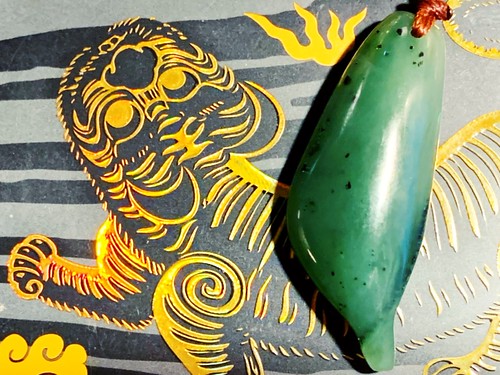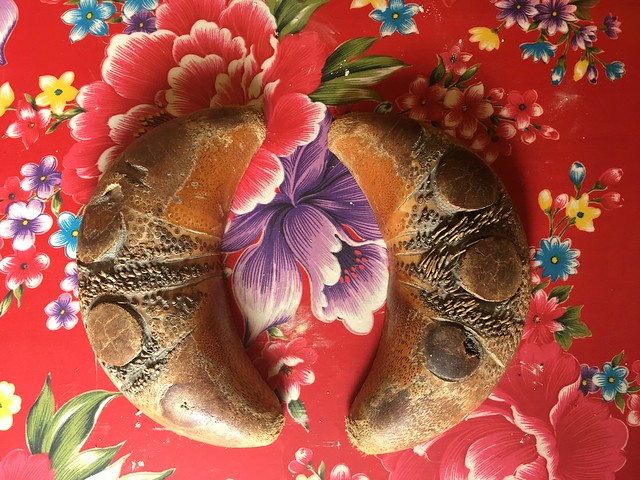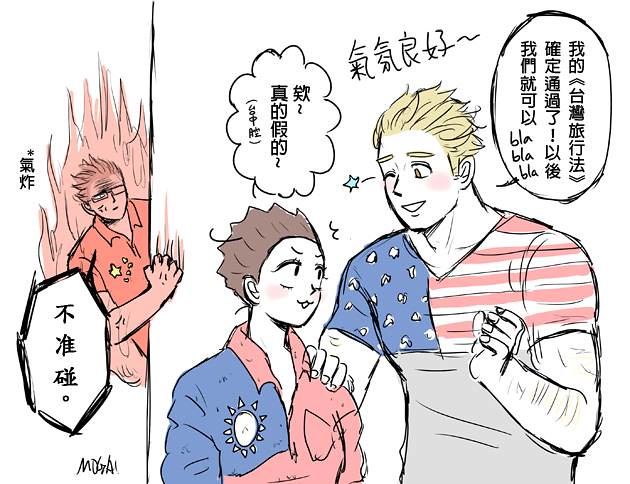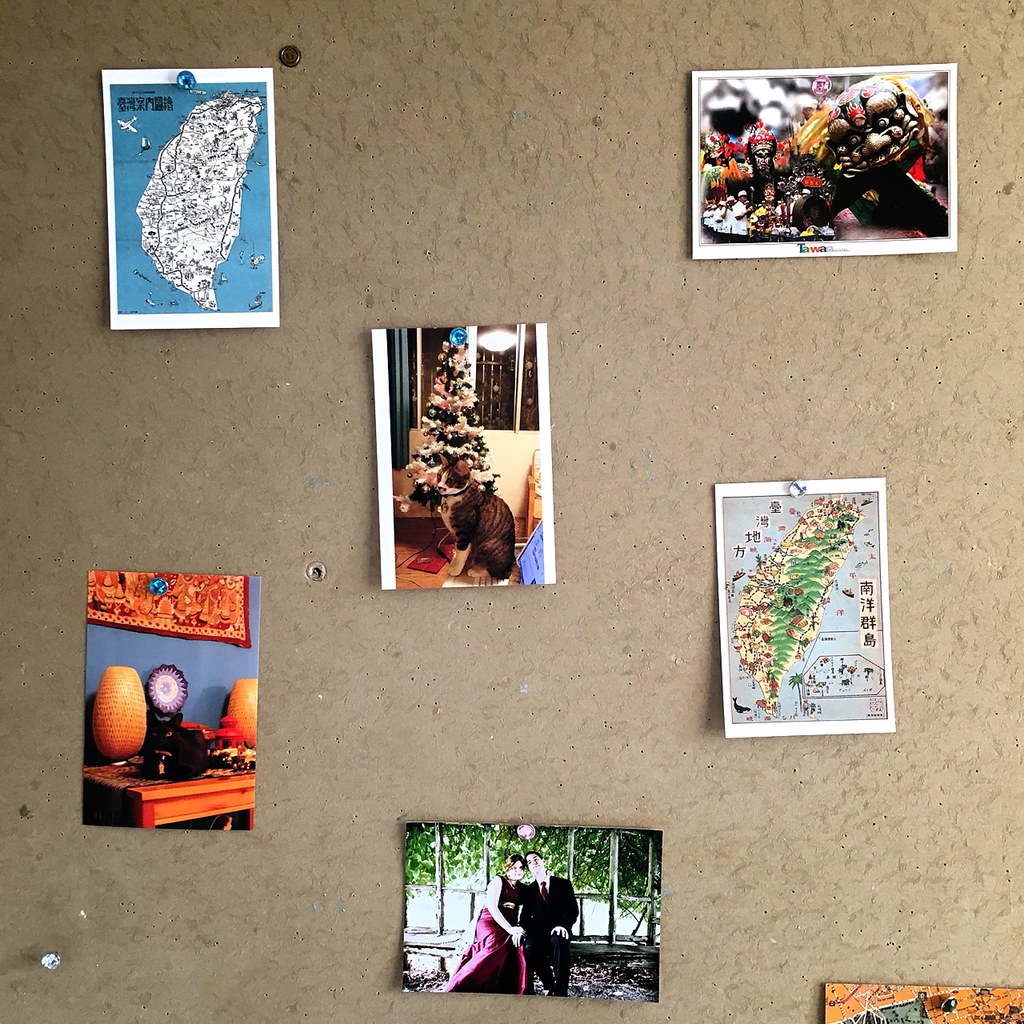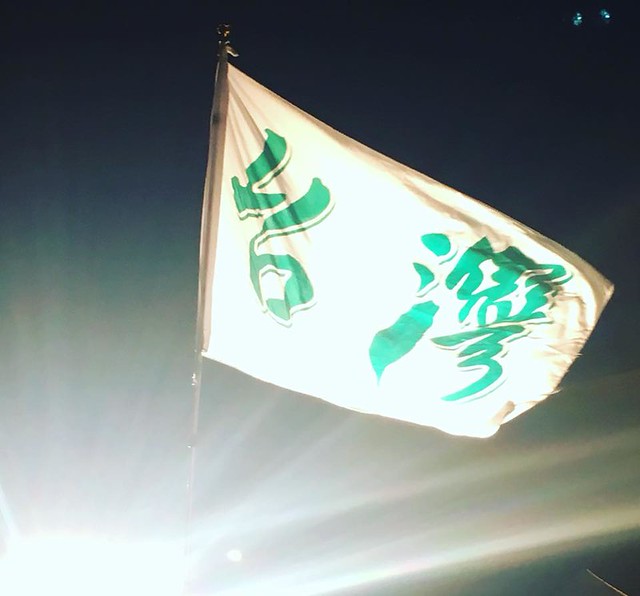 |
| This is how this whole thing makes me feel. Every DPP and CECC official who supports this should be ashamed. |
It's rare that I write a post which is not about the KMT or CCP, and have trouble calming down enough to write it because I'm so thoroughly disgusted.
But recently, this happened:
Leading Democratic Progressive Party (DPP) members yesterday defended the Central Epidemic Command Center’s (CECC) decision to overturn the Mainland Affairs Council’s (MAC) announcement allowing the entry of Chinese children of Taiwanese and Chinese couples into Taiwan, and praised the Executive Yuan’s quick response.
Basically, that means that the Mainland Affairs Council was going to allow spouses and children of Taiwanese working in China to evacuate to Taiwan in the wake of the COVID-19 (coronavirus) epidemic. Then the DPP and health officials tasked with coordinating Taiwan's public health response overturned that decision, citing two reasons: first, that it would over-burden Taiwan's health workers, which is obviously something that must be taken into consideration, but not as a blanket excuse, but an aspect of risk assessment.
Second:
The Executive Yuan was quick in reading the pulse of public opinion, and put a temporary stop to that policy to reflect the will of Taiwanese, Cho told reporters at party headquarters in Taipei.
Even the Taipei Times calls them "Chinese kids" in the headline. But they have one Taiwanese parent - they are Taiwanese kids just as much as they are Chinese, although their paperwork may not reflect this. Taiwan may not have a legal obligation to them, but as the children of Taiwanese citizens, I'd argue there is some moral obligation.
This comes on the heels of an uproar over an evacuation flight that was meant to bring people at elevated risk back to Taiwan, but ended up carrying a number of Chinese spouses and children of Taiwanese, including one known case of infection, bumping at-risk people to take them instead, and not informing Taiwanese officials of the passenger change.
That understandably provoked public fury - or at least, it was understandable that people would be angry about at-risk individuals being bumped from the list of initial evacuees.
This, however? No.
I'm surprised and horrified by the low quality of public discourse on this issue. There are good points to be made about public health, exactly how many children are affected, and what we can do in the face of an intransigent China who is sabotaging Taiwan's evacuation efforts.
But, although some people are saying these things, what I'm hearing instead is "Taiwanese First!", which makes me, as a foreign resident, wonder at what point I might be denied services in a crisis here. "Those kids are Chinese so they are not our problem!" - legally, no, but ethically - they are the minor children of Taiwanese. "Their parents chose for them to be Chinese, this is the consequence!" - for the parents, that has some logic - for the kids, though? They didn't choose their passport.
And, of course, "thousands of them will come over and infect us all!"
It's worth pointing out that these were the original requirements set forth by MAC for minor Chinese nationals with a Taiwanese parent to come to Taiwan:
"Allow Chinese minor children of Taiwanese and Chinese couples who...
- have an Alien Resident Certificate or a long-term visa for visiting family or relatives
- placed in home quarantine for 14 days after arrival.
- only include Chinese children who are under 18 years old
- have been living in Taiwan
- have no one to take care of them in China
- must apply for entry and gain approval from the National Immigration Agency"
Frankly, I think that sounds quite reasonable. It's doubtful many children will meet those requirements, and they specifically target the children of Taiwanese nationals in need. So "thousands of them will flood our system!" is simply not a rational risk assessment. We don't know the risk, but given less politicking, the government could probably figure that out. As far as I'm aware, they never even tried.
I do wonder, if these children were any other nationality, whether this debate would be happening. In which case, the problem isn't "we can't take them" but rather "we don't want them because they're Chinese".
I understand that people are upset not only about what happened on the first flight, but that the parents chose Chinese nationality for them, and that these couples have chosen to live in China, not Taiwan. Emotions are running high. There's no easy answer.
But there seems to be a lot of throwing around of whatever facts will fit someone's pre-conceived opinion, and very little time taken to reflect on whether one's response is adequately compassionate. Nobody's really thinking about what it actually would mean to not allow minor children with no one to care for them in China to come to Taiwan.
To be clear, that is exactly what the government is saying:
Chen said he believed Chinese spouses, who unlike their children are still permitted to return to Taiwan, will make appropriate arrangements for their minor children if they have to leave them in China.
The new policy may put some pressures on Chinese spouses, but since they chose not to apply for Taiwan citizenship for their children, they have to take responsibility for making the required arrangements for them now, Chen said.
In effect, the government is stating that they may well tell parents that they can leave China, but their minor children have to stay behind. I don't know any parent who would actually choose that.
It is this simple: when given a choice between politics - the "will of the people" - and children's lives, the Central Epidemic Command Center and DPP officials chose politics.
They surely know that the real risks of letting some children in cannot possibly be as high as opponents say, as they shriek nationalist slogans like 'Taiwanese First!' - which sounds like something Trumpists would say.
To be fair, there is no good choice here. Health care capacity is an issue, and without a clear way to know who would be on those flights, it's difficult to say they should continue. However, at the end we should err on the side of helping as many people as we can, and on keeping families together when possible.
The government could have made coherent public health argument for going slow, taking our own ability to treat people into account, and figuring out what to do about the problems on the China end. If they had said "we can't continue flights until we can guarantee that Taiwanese officials can oversee the passenger lists", I wouldn't be writing this. If they'd said "we have to ensure that they don't get priority but we'll try to get everyone out as we are able", nobody would argue with it. If they'd said evacuation needed to be stalled until these things could be worked out, this piece would not exist. They didn't.
Instead, they went straight for the nationalist sentiment - "the people don't want it, so we won't do it".
If including (some) children of Taiwanese people in the evacuation plans even if they don't have Taiwanese nationality 'looks bad' to the Taiwanese public, I'm sorry, but the Taiwanese public is wrong.
We justifiably complain that Taiwan's exclusion from the World Health Organization harms global health, especially in a time of crisis, denying human beings safe harbor in Taiwan is also harmful. Surely people will die who would have lived, if political posturing hadn't been deemed a higher priority. If Taiwan complains about the WHO putting lives in danger over politics - well, we are doing the same thing. We lose all moral high ground when we play the same damn game.
And these DPP officials are congratulating themselves for deciding that it's okay if children whom they could have saved, die (from the Taipei Times article):
DPP Chairman Cho Jung-tai (卓榮泰) lauded the government’s quick response after MAC’s announcement on Tuesday drew a predominantly negative response....
DPP Legislator Wang Ting-yu (王定宇) said that MAC officials made a “foolish” announcement on Tuesday.
“Right now, most Taiwanese are very worried about the ‘Wuhan virus’ and they are distrustful of the Chinese government,” Wang said. “As such, people were riled up and criticized MAC officials. I see this reaction as a very good thing for Taiwan, as it sends a strong signal of their discontent about the decision.”
I have admired both Cho and Wang in the past.
Today, I am disgusted by them.
"Distrust of the Chinese government" is not enough of an excuse to tell families that only some members can be evacuated.
I cannot stress this enough: this is horrifying. It's macabre. It may not be murder exactly, but it is murder-adjacent.
Yes, it would create more work for health care workers, and we can't ignore that. But consider how completely overwhelmed health workers in China are - people are dying before they can even get into a hospital. Taiwan has fewer than two dozen cases, and no community spread - it is absolutely possible to formulate a strategy that takes health care capacity into account.
What kind of country is unwilling to even attempt to figure out a solution for the children of its own citizens?
There are those who say that Taiwan needs to "protect its own citizens":
“However, it is clear that in light of the epidemic, the public believes that the government must prioritize protection of its citizens, and that their welfare must come first,” he added.
And of course, Taiwan simply cannot save every child in China. But please remember, these are the children of citizens, and not even very many of them. In that light, this sounds more like a nationalistic argument than a rational one.
It would not be an evacuation of Chinese people with no connection to Taiwan. They have the right to access Taiwanese (well, ROC) citizenship themselves. The children are half-Taiwanese! In many cases, this policy will surely put Taiwanese citizens themselves at risk as well, as many will be unwilling to leave their families.
I can imagine myself in such a situation. My husband has Canadian citizenship, but I don't as we've never endeavored to live there. If there were a pandemic in Taiwan and the Canadian government said that my husband could be evacuated to Canada but he'd have to leave me behind, I highly doubt he would go.
Some say that if these family members have never sought the proper documents to come to Taiwan, that technically they have no rights here. Legally, I don't know if that's the case - they might truly have no rights, or they might have rights (especially the children of Taiwanese nationals) but be unable to access them.
This is not a compelling argument. The PRC doesn't allow dual nationality, especially not with the ROC. In theory, one cannot 'give up' PRC nationality. In practice, immigrating to Taiwan means giving up Chinese documentation and obtaining ROC documentation. The PRC doesn't recognize these documents, but considers the new household registration to be in 'Taiwan province'. If you get such a household registration, you lose the one you had in China. So, practically speaking, you are giving up one nationality for another. There is no other way for Chinese nationals to become Taiwanese citizens.
There's an argument to be made that they 'chose China' and therefore Taiwan has no obligation to them. I get that. But - if you've gone to China for work and your spouse is Chinese, getting your child ROC nationality isn't easy to do.
I understand that as an American abroad I lose some of the guarantees that come with being a US citizen, and I am not guaranteed a safe evacuation should problems arise in Taiwan. I too felt that the Taiwanese woman working in Wuhan who returned to Taiwan knowing she had COVID-19 symptoms was selfish - she put others in danger when choosing to work abroad means accepting that you may have to be treated through local medical care.
These are official channels we're talking about, however, and children who didn't do anything wrong. That's not the same as putting others in danger by sneaking back in with a fever.
In any case, if a Taiwanese person goes to China for work, meets someone and has a child there, it would make sense that they would stay there. Yes, it would be preferable if these families had chosen to put their faith in Taiwan, but it doesn't make them bad people that they chose a path that looked sensible to them personally.
I've also heard that this is how things are because relations between Taiwan and China are not like normal countries. This is true, but it's not a reason to separate families.
And if this is what the people in Taiwan want, they are wrong, especially if they're crying "disease knows no borders!" at the WHO, while closing their borders to the families of their own citizens.
People are justifiably angry over the way China has treated Taiwan. They shouldn't trust the Chinese government, but any belief that prioritizes politics, nationalist sentiment and hurt feelings over the lives of children is problematic.
I chose to stay in this country because I believe in what it stands for - a beacon of freedom, and not in the drum-beating American way. In standing up for yourself in the face of unimaginable, seemingly insurmountable opposition. In refusing to back down when everyone is against you, because you are in the right. In doing all of that unflinchingly, but also peacefully, because nobody wants a war.
I believe in the kind of country Taiwan can be, and I think it can do better than this.
Perhaps I was wrong. At a time when the Tsai administration, DPP and CECC could have shown leadership - not pandering to the worst impulses of people but rather demonstrating and encouraging higher standards in our actions and discourse - they chose pandering.
Independence or a unique identity from China is not enough - Taiwan has to not just stand up as a country, but decide what kind of country it wants to be.
This country could have shown the world that, unlike China and the WHO, it won't sacrifice families children for the sake of politics. It didn't.
Taiwan can be - and needs to be - better than this.



